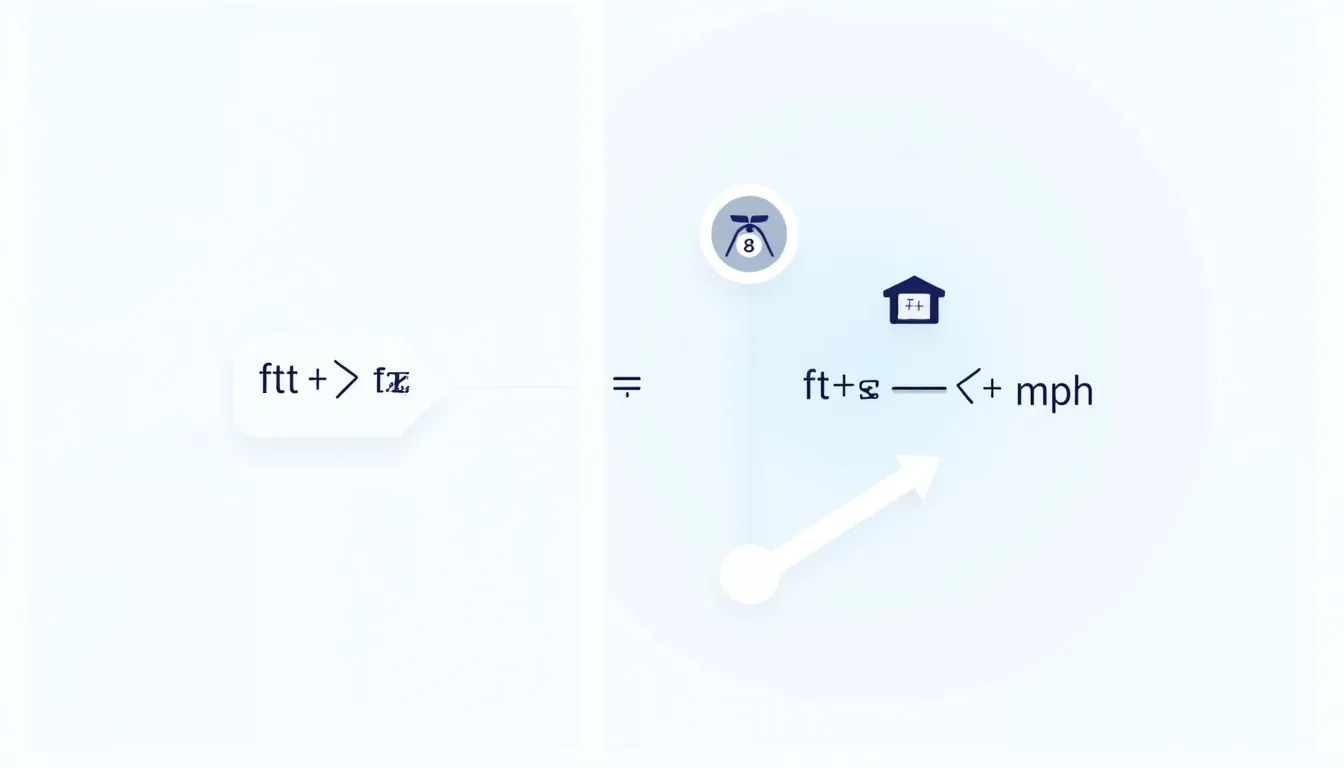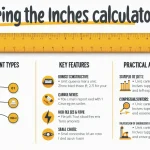ft/s to mph Converter
Is this tool helpful?
How to use the tool
- Enter speed (ft/s). Type your value—e.g., 47.3 or 162.8.
- Choose decimal places. Any whole number from 0 to 10—e.g., 1 or 5.
- Press Convert. The result appears beneath the form.
Formula behind the calculator
The script applies
$$ \text{mph}= \text{ft/s} \times rac{3600}{5280}= \text{ft/s} \times 0.6818181818 $$(Units of Length – NIST, https://www.nist.gov).
Example calculations
- 47.3 ft/s, 3 decimal places: 47.300 ft/s × 0.681818 = 32.154 mph.
- 162.8 ft/s, 1 decimal place: 162.8 ft/s × 0.681818 = 111.0 mph.
Quick-Facts
- Conversion factor: 1 ft/s = 0.681818 mph (Units of Length – NIST, https://www.nist.gov).
- Allowed precision: 0-10 decimal places (Tool documentation, 2024).
- Typical wind speeds: 30 ft/s ≈ 20.5 mph (NOAA Wind Scale, https://www.weather.gov) .
- U.S. road signs: Posted in mph since 1978 (FHWA Manual, https://mutcd.fhwa.dot.gov).
Understanding the units
Feet per second (ft/s)
Ft/s expresses distance traveled in one second; engineers measure conveyor or projectile speeds in this unit (Engineering Toolbox, https://www.engineeringtoolbox.com).
Miles per hour (mph)
Mph denotes miles traveled in an hour and appears on vehicle dashboards and weather reports (USDOT, 2020 Highway Statistics).
Where is this conversion useful?
- Sports analytics: Calculate runner or pitch velocity for broadcasts.
- Drone piloting: Convert telemetry to mph for quick situational awareness.
- Physics labs: Communicate experiment results in everyday units.
- Logistics: Verify conveyor belt or vehicle speeds against safety limits.
FAQ
Why convert ft/s to mph?
Most U.S. audiences understand mph; the conversion makes technical data relatable (USDOT, 2020).
What’s the exact factor?
Multiply by 0.6818181818, derived from 5280 ft per mile and 3600 s per hour (NIST, https://www.nist.gov).
Is the tool accurate?
Yes; it calculates with the full factor then rounds to your chosen decimal place.
What range can I input?
The script handles any real number up to JavaScript’s 15-digit precision—far beyond typical speeds.
How do I estimate mentally?
Use two-thirds of the ft/s value for a quick ≈3% low estimate (Physics Classroom, https://www.physicsclassroom.com).
Does temperature affect the math?
No; the units are purely kinematic and independent of atmospheric conditions.
Can I reverse the conversion?
Yes; divide mph by 0.681818 to get ft/s, or use an mph→ft/s tool.
Is mph an SI unit?
No; SI uses metres per second, but mph remains legal for U.S. commerce (NIST Handbook 44, 2022).
Important Disclaimer
The calculations, results, and content provided by our tools are not guaranteed to be accurate, complete, or reliable. Users are responsible for verifying and interpreting the results. Our content and tools may contain errors, biases, or inconsistencies. Do not enter personal data, sensitive information, or personally identifiable information in our web forms or tools. Such data entry violates our terms of service and may result in unauthorized disclosure to third parties. We reserve the right to save inputs and outputs from our tools for the purposes of error debugging, bias identification, and performance improvement. External companies providing AI models used in our tools may also save and process data in accordance with their own policies. By using our tools, you consent to this data collection and processing. We reserve the right to limit the usage of our tools based on current usability factors.







